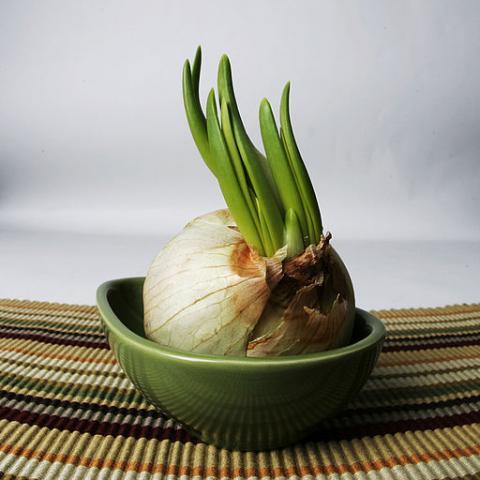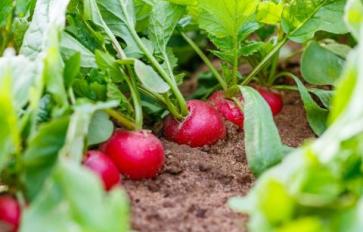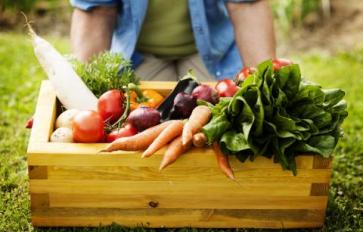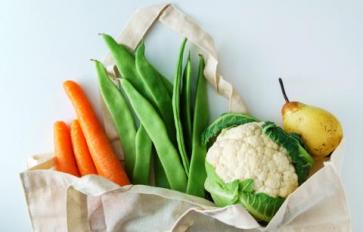
Everyday we create food waste in one form or another. Tossing out food that has spoiled, failing to utilize food scraps to their full capacity, and even gluttony are all culprits of food waste. It's hard to imagine, but our ability to overindulge as a first world country isn't only bad for health, it's also not doing our food supply any favors. According to a recent study by the University of Edinburgh, about one-fifth of the world's food supply is lost due to throwing away food and overeating. That's twenty percent of consumer food!
This spring, I urge you to take the sustainable challenge. When making decisions regarding what goes on your plate, try and do it in a sustainable manner. By becoming aware of how and what we eat, the twenty percent of wasted food has a chance of dwindling more than just your waistline.
Here are a few tips on how to have a sustainable spring:
1. Plant a Garden
Eating fresh fruits and veggies straight from the garden is as local as it gets! It reduces the carbon footprint, along with trips to the grocery store. The produce tastes better too! There is nothing quite like biting into a juicy apple or a ripe tomato that is homegrown. Having your own organic garden at your disposal saves money along with the environment. As an added bonus, gardening soothes the soul and keeps you active.
2. Regrow in Water
Not all of us are lucky enough to have a garden. One trick, however, is to regrow your own food in nothing more than a jar of water. Foods such as green onion, lettuce, and cabbage can all be regenerated when the bottom portion is stuck in water. Simply place the bottom inch of the food in water, stick it in the kitchen window, and watch it grow. It cuts down on food waste, and it comes in handy. Trust me, I have gotten a lot of bang for my buck when it comes to green onions.
3. Go Veggie
According to the Edinburgh researching team, the most inefficient food to raise or produce is livestock. It was found that livestock and animal products accounted for losses up to 78 percent. The increasing demand for meat by consumers results in unsustainable food practices. By eating more produce, the demand for animal and animal products can decrease, making the system more efficient. When you can, try to incorporate more vegan or vegetarian meals. If a plant based diet doesn’t work for you, it’s at least worth eating only sustainably sourced meat.
4. Eat Seasonally
With transportation and current agricultural practices, it's easy for us to go to the store and buy produce that's not in season. While it may be tempting, it's not exactly sustainable. When purchasing your produce, choose to eat sustainably by buying what's in season. While produce varies from region to region, a few foods in season in spring are strawberries, spinach, asparagus, morels, and arugula.
For more on seasonal produces according to state, checkout the seasonal food guide at Sustainable Table.
5. Eat and Buy Local
When dining out, support your farm-to-table restaurants. Eating their locally sourced goods not only helps in reducing the carbon footprint, but the food is fresher and helps the local economy.
Buying local food also does the same. When shopping for produce, look at the labels to see where the food comes from. If it’s from a few states over, or another country, it most certainly is not local.
6. Purchase Less
One of the easiest ways to guarantee food won't go to waste is to buy only the food that will get used up right away. If possible, it's best to plan three days at a time and buy ingredients that can be used in various dishes. This increases the chance of the food being consumed, as well as keep the produce from losing nutrients.
7. Support Your Local Farmer's Market
Direct to consumer markets are the best way to buy produce, and what better place for that than at the local farmer's market. A hub of all the best produce around, the farmer's market is an excellent source for buying local, seasonal produce. It also supports the little guy and that is something to feel good about.
This spring, go green and make an effort to live sustainably.








